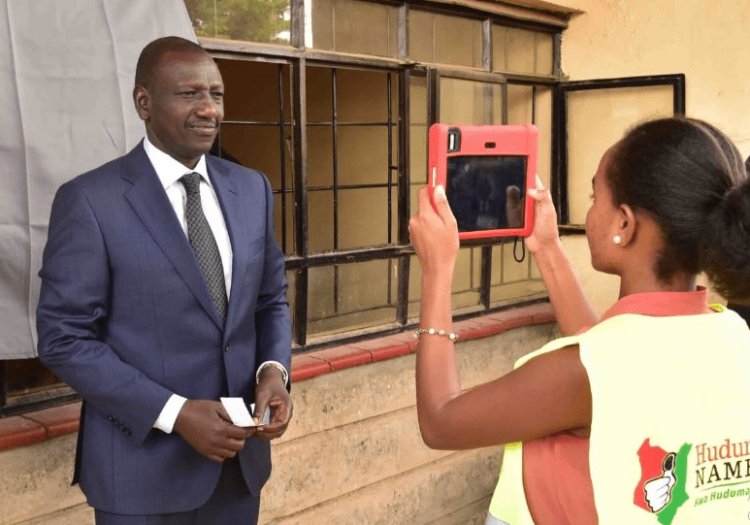Maisha Card: When Kenyans Will Start Getting New Digital ID Card
State Department for Immigration and Citizen Affairs Principal Secretary Julius Bitok, who addressed the media on Tuesday, September 12, revealed that the UPI will be issued to all citizens at birth.

President William Ruto's government will launch the highly-anticipated Unique Personal Identifier (UPI) identity card dubbed the 'Maisha Card' on Friday, September 29, 2023.
State Department for Immigration and Citizen Affairs Principal Secretary Julius Bitok, who addressed the media on Tuesday, September 12, revealed that the UPI will be issued to all citizens at birth.
He added that the UPI to be anchored on a digital platform dubbed Maisha Number will replace the country’s second-generation identity cards.
The UPI will be uploaded in the eCitizen portal and will give all newborns a unique number to be used in schools and colleges as well as be used by the National Health Insurance Fund (NHIF), and Kenya Revenue Authority (KRA) as a means of identifying all Kenyans as well as the death certificate number upon demise.

Immigration PS, Julius Bitok, during a breakfast meeting with the National Digital Identity Steering Committee on September 12, 2023. /X.JULIUS BITOK
“We are implementing the president’s directive that we introduce a digital ID within 90 days. We shall now have a new number called the Maisha Number that everyone born in Kenya will have. It will be the birth certificate number, used as the ID number, for work, for KRA PIN,” Bitok stated.
The card anticipated to phase out the second-generation IDs will cost taxpayers Ksh1 billion.
Bitok explained that the National Digital Identity has four components, UPI (Maisha Number), Maisha Card (a third generation ID card), Digital ID that could be linked to a mobile phone, and a National Master Population Register consisting of all persons living in Kenya.
The Immigration PS further revealed that the technical committee is going to roll out activities towards the implementation of national digital identity within the 90 days directed by President Ruto.
Once assigned at birth, the Maisha Number will serve as a lifelong UPI, streamlining documentation processes throughout an individual’s lifetime.
PS Bitok clarified that, unlike the Huduma Number, which required the collection of biometric data from the public, the Maisha Number will be generated using existing databases, including those from civil registration.
For those seeking ID replacements, the new cards will take the form of Maisha cards, with the government transitioning to third-generation cards moving forward.
This therefore means that the government will cease issuance of second-generation cards after Saturday, September 30 with new applicants acquiring Maisha Numbers.
“For those turning 18, we will start immediately issuing them the Maisha Number. For those who have lost their IDs, we are going to give them the new digital ID cards without necessarily starting afresh like Huduma Number,” the PS explained.
Bitok emphasized that the Maisha Number will feature a Machine-Readable Zone compliant with International Civil Aviation Organization (ICAO) standards, a feature which distinguishes the Maisha Card from the predecessing Huduma Card.
“In the Huduma Card, we didn’t have the Machine-Readable zone. However, in Maisha Card, we are going to have that part captured and is a very important part according to ICAO standards and this a very different product altogether,” he explained.
The PS acknowledged that the project would require time for a comprehensive rollout, estimating a transition period of two to three years to fully implement the new IDs.
The government has already initiated discussions with various stakeholders, including civil society groups and the private sector, with plans to conduct extensive public participation to ensure the project’s success.
Bitok called upon all Kenyan citizens to collaborate with the government in embracing this digital transition, underscoring its pivotal role in advancing the nation’s development.
“This is a whole government project; we need everybody on board because identity issues are very important,” he added.







